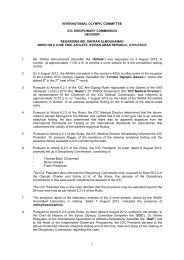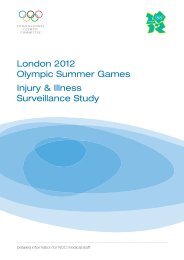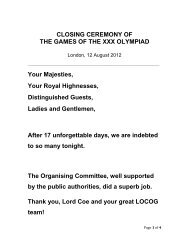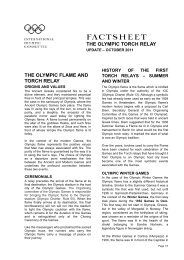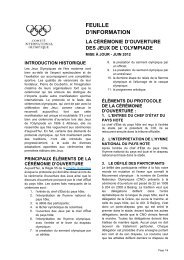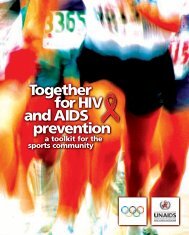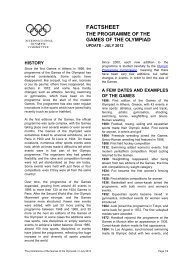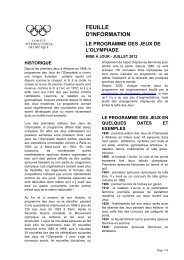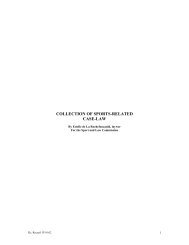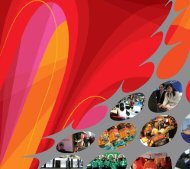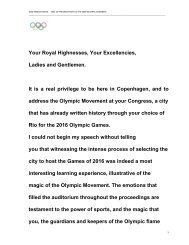8th WORLD CONFERENCE ON SPORT AND THE ENVIRONMENT
8th WORLD CONFERENCE ON SPORT AND THE ENVIRONMENT
8th WORLD CONFERENCE ON SPORT AND THE ENVIRONMENT
You also want an ePaper? Increase the reach of your titles
YUMPU automatically turns print PDFs into web optimized ePapers that Google loves.
<strong>8th</strong> World Conference on Sport and the Environment<br />
International Cooperation and Development Department<br />
Report<br />
She summarised the carbon footprint of the event, with respect to stadia construction, energy<br />
use, transport and International transport. One of the questions is whether South Africa should<br />
make the event carbon neutral, given that much of the CO 2 emissions are international travel.<br />
A challenge is that offsetting requires more money. But the national government will not provide<br />
more funds, because of the economic crisis, which has led to the belief that the money can go to<br />
other more important areas.<br />
Mr Ian Gill,<br />
President, Ecotrust Canada, Canada<br />
Mr Gill started his presentation with a quote from the environmental author Ed Abbey, who stated,<br />
“The best thing to do for the environment is stay home.” However, he contended that the sport<br />
industry can’t do this since one can’t stay home. For instance, he pointed out that the Games are<br />
just one event, and Canada hosts about 250,000 sporting events every year. Moreover, 30% of<br />
overnight fl ights to Canada are to participate in sport.<br />
He stated that the greatest contribution VANOC can make is to invest in renewable energy right<br />
here at home, what he called “backyard carbon offsets” or “community development offsets.” He<br />
stated that, “An old rallying cry says “Think Globally, Act Locally. Olympics are a global act that<br />
should have local benefi ts. So the saying should be: Think globally, benefi t locally.”<br />
Mr James Mack,<br />
Acting Head, BC Climate Action Secretariat, Canada<br />
Mr Mack stated that the Government of BC has recognised that climate change is a human<br />
problem. One of the tools in BC is the revenue neutral carbon tax, with the revenue generated<br />
allowing for reductions to personal and corporate taxes. He stated that BC will be taking action<br />
in every sector. For example, in 2010, the Government of BC will be carbon neutral, which means<br />
that many people will be affected by the initiative – both employees and their children.<br />
The challenge, according to Mr Mack, is to think about the role of sport. The challenge for the BC<br />
Government, in the Olympic context, is that it cannot pass a law to make gold medal athletes. It<br />
can inspire but not make the necessary changes. This is the same case in climate change: the<br />
government can inspire, but the person needs to resolve to make that choice to change.<br />
Mr Mack outlined three key points:<br />
1. Athletes can be role models and inspire young people by showing them that by setting a target<br />
and taking on impossible odds, you can achieve great things. Olympic athletes are needed to<br />
show what is desirable and cool to young people.<br />
2. The Games will be a showcase for BC technology and entrepreneurship. He contended that<br />
the companies that come forward with offsets will be seen as entrepreneurial.<br />
3. There is a real opportunity for every British Columbian to decide what is the take-away message<br />
from the Games. They must think about what they want people to remember about BC, which<br />
will crystallise how they want to contribute.<br />
Page 40 / 80





